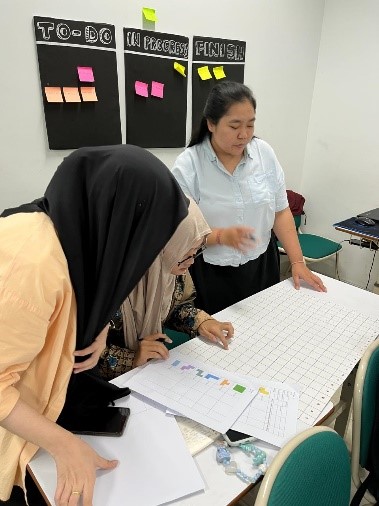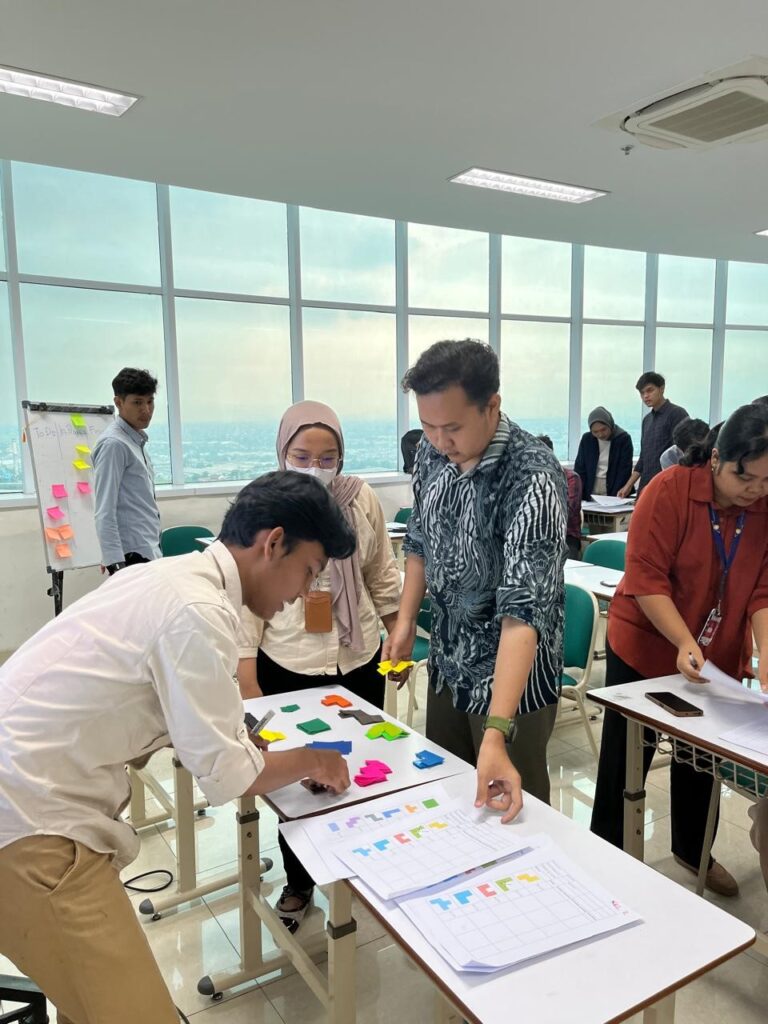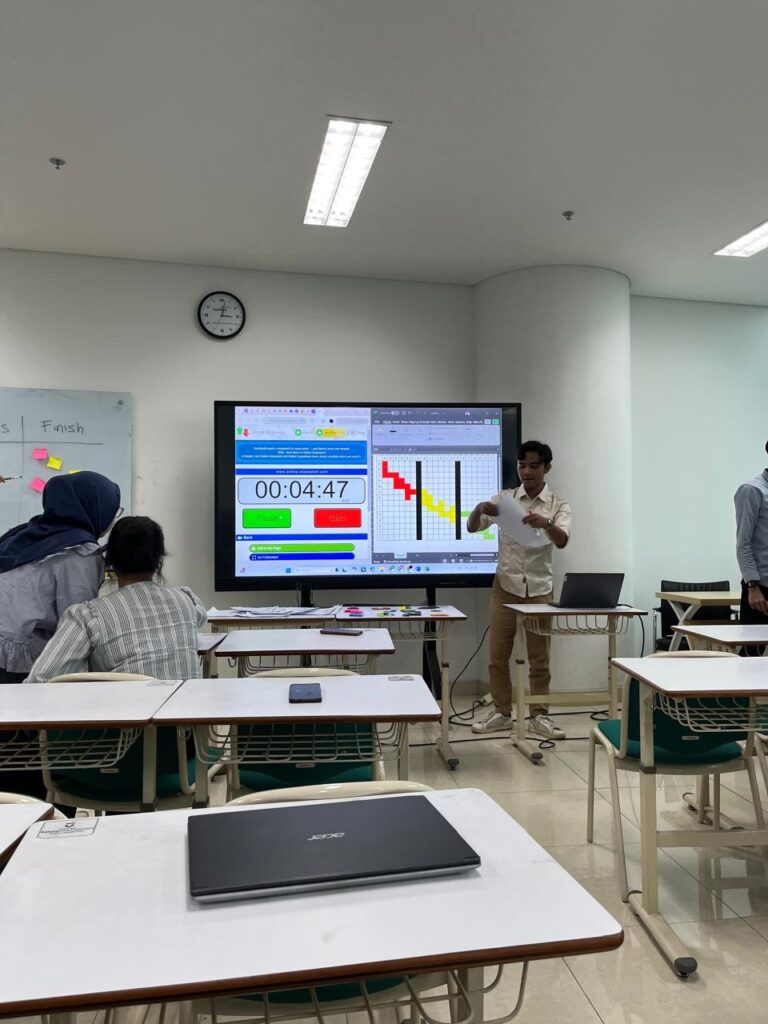Pendampingan Penggunaan Alat Peraga Berupa Case Based Learning Kit untuk Siswa SMA/SMK di Bandung
Dalam rangka meningkatkan kualitas pendidikan ditingkat sekolah menengah, Fakultas Rekayasa Industri Universitas Telkom mengadakan kegiatan pengabdian masyarakat bertemakan “Pendampingan Penggunaan Alat Peraga Berupa Case Based Learning Kit untuk Siswa SMA/SMK di Bandung”. Case Based Learning Kit diharapkan menjadi solusi Pembelajaran yang interaktif untuk para siswa.
Case Based Learning Kit adalah alat peraga inovatif yang dirancang untuk memfasilitasi pembelajaran berbasis kasus dalam mata pelajaran manajemen proyek dan sistem produksi. Kit ini berisi balok-balok dengan berbagai bentuk yang dirancang untuk membangun simulasi proyek. Peserta dilatih untuk melakukan perencanaan kebutuhan, pemesanan, dan menampilkan proses produksi menggunakan metode Kanban.


Melalui pendekatan ini, siswa dapat memahami konsep manajemen proyek dan produksi secara praktis, sekaligus meningkatkan keterampilan kerja yang relevan dengan kebutuhan industri. Tim pengabdian masyarakat yang beranggotakan dosen dan mahasiswa Teknik Industri Universitas Telkom bekerja sama
dengan pengrajin kayu lokal untuk memproduksi alat peraga. Kegiatan ini bertujuan untuk membangun sinergi antara akademisi dan UMKM guna menciptakan alat pembelajaran yang aplikatif dan relevan dengan standar industri.
Kegiatan ini memiliki beberapa tujuan utama, diantaranya, memberikan pengalaman praktis kepada siswa dalam manajemen proyek dan sistem produksi, menguji efektivitas penggunaan Case Based Learning Kit dalam proses pembelajaran di SMK dan mendapatkan umpan balik untuk penyempurnaan alat peraga dan metode pembelajaran.
Kegiatan dimulai dengan pembukaan oleh ketua tim pengmas, diikuti dengan pemaparan materi dilakukan secara interaktif, di mana siswa diajak untuk memahami konsep-konsep dasar sebelum mencoba langsung menggunakan Case Based Learning Kit. Simulasi proyek menjadi inti dari kegiatan, di mana siswa membentuk kelompok, merencanakan proyek, dan menyelesaikan tantangan yang diberikan menggunakan kit tersebut.


Setelah simulasi, sesi tanya jawab berlangsung diikuti oleh sesi foto bersama sebagai dokumentasi. Tidak hanya siswa, para guru juga memberikan feedback terhadap metode ini karena dianggap mampu menjembatani kesenjangan antara teori dan praktik.
Harapannya kegiatan ini dapat menjadikan siswa lebih antusias dan memahami materi dengan lebih baik melalui pendekatan ini. Selain itu, program ini diharapkan menjadi inspirasi bagi sekolah lain untuk mengadopsi metode pembelajaran berbasis kasus yang interaktif dan aplikatif. Bagi Fakultas Rekayasa Industri Case Based Learning Kit ini dapat menjadi alat untuk promosi program studi S1 Teknik Industri. Pada saat ini dibutuhkan pengembangan alat agar lebih menarik dengan perubahan beberapa desain. Untuk kedepannya alat ini dapat dijadikan tools untuk simulasi trial class bagi seluruh siswa SMA/SMK yang ingin mendaftar di program S1 Teknik Industri Universitas Telkom.
